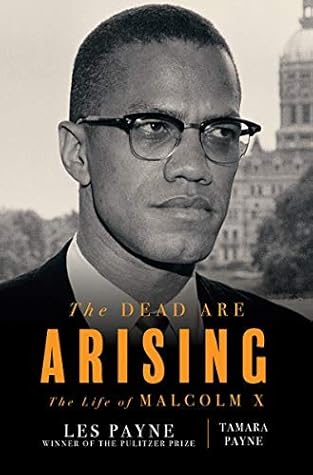More on this book
Community
Kindle Notes & Highlights
Malcolm was in effect offering himself—not his exotic Messenger—as a viable option should King’s handling of racial matters falter, as the Muslim spokesman eloquently, although not quite accurately, predicted it would.
“King had the benefit of middle-class rearing and the best of education, which altered his sense of rage,” said Walker, who as a close associate ghostwrote many of King’s newspaper columns. “Malcolm X didn’t have that; his rage was right there on the surface.”
“Malcolm X galvanized a quarter of black life—the unchurched masses—which up til that time had no interest in liberation matters,” Walker said. “He became a voice for them because they had no voice. Those [blacks] in the organized religious arena had ministers and Martin [King] and the rest of us speaking for them. The people in the streets did not.”
Reverend King had committed the unpardonable Bureau sin of criticizing the FBI
In several cases, the director’s responses to King’s triumphs were reminiscent of the dialogue of comic book villains.
Hoover wasn’t content simply to gather intelligence on black leaders. He aggressively sought ways to use this information to discredit these leaders, to strip them of organizational and even spousal support, to turn them against comrades, and, where possible, to clandestinely promote fratricidal bloodletting. This last ploy of Hoover’s agency was headed toward fruition within the Muslim camp.
“What else is there to do when you are alone for days in the dull monotony of a narrow cell other than write long letters, think strange thoughts, and pray long prayers?”
“When I was fourteen, I [won] an oratorical contest . . . my subject was ‘The Negro and the Constitution.’ [On the bus home] the white driver ordered us to get up and give the whites our seats. We didn’t move quickly enough to suit him, so he began cursing us, calling us, ‘black sons of bitches.’ I intended to stay right in that seat, but [my teacher] finally urged me up, saying we had to obey the law. And so we stood up in the aisle for the ninety miles [from Dublin, Georgia,] to Atlanta. That night will never leave my memory. It was the angriest I have ever been in my life.”
King applied for a pistol permit, but was denied one as a young pastor in the capital of Alabama.
While it could be said that King dedicated his lifework to hammering away at the segregator’s “false sense of superiority,” Malcolm, under the influence of Elijah Muhammad, worked single-mindedly to help Negroes, the segregated, overcome their “false sense of inferiority.”
Traveling alone and with only the thinnest of organizations behind him, he won access to the leaders of Africa and practiced high-level diplomacy. Malcolm presented himself as speaking for 22 million Afro-Americans, and generally was treated as such.
“Thus, in my opinion, the Muslim religious leaders of today must re-evaluate and spell out with clarity the Muslim position on education in general and education for women in particular. And then a vast program must be launched to elevate the standard of education in the Muslim World. An old African proverb states: ‘Educate a man and you educate an individual; educate a woman and you educate an entire family.’”
After the young cop’s warning about Malcolm’s imminent assassination, the police department reacted by sharply reducing the uniformed presence in front of the ballroom. Roberts would be even more troubled a week later by the inordinately long time the department took to answer the emergency call to take Malcolm to Columbia Presbyterian Hospital.
His repeated acts of self-creation spoke to me; the blunt poetry of his words, his unadorned insistence on respect, promised a new and uncompromising order, martial in its discipline, forged through sheer force of will. —BARACK OBAMA
With his appreciation of the power of words, Malcolm helped change the very names people called themselves, turning “black” from an insult among so-called American Negroes—fighting words, in many cases—to a proud affirmation. Later, after his sojourn in Africa and his conversations with black American expatriates there, he helped popularize the term “Afro-American,” embracing an Africa that had been seen only as an embarrassment by the Nation of Islam, as well as by many Christian Negroes. “You can’t hate the roots of a tree and not the tree,” he would say as he directed African American eyes
...more
Malcolm lived only to age thirty-nine,
As a Black American I do feel that my first responsibility is to my 22 million fellow Black Americans who suffer the same indignities because of their colour as I do. I don’t believe my own personal problem is ever solved until the problem is solved for all 22 million of us.
In every Middle-East or African country I have visited, I noticed the country is as “advanced” as its women are, or as backward as its women. By this I mean, in areas where the women have been pushed into the back-ground and kept without education, the whole area or country is just as backward, uneducated and “underdeveloped.” Where the women are encouraged to get education and play a more active role in the all-around affairs of the community and the country the entire people are more active, more enlightened and more progressive.
An old African proverb states: “Educate a man and you educate an individual; educate a woman and you educate an entire family.”


